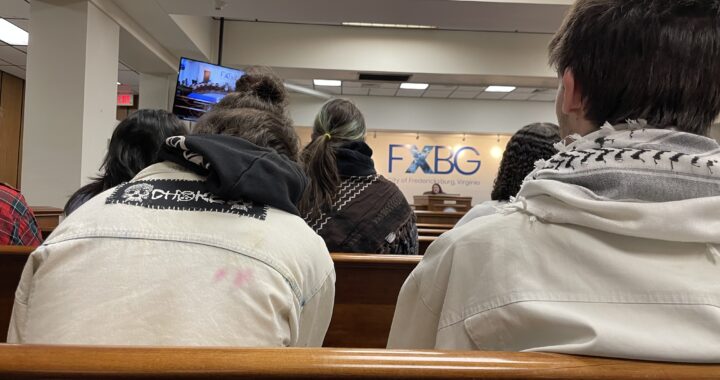Staff Ed: North Carolina bill not step in right direction for transgender people
3 min read
Lauren Brumfield | The Blue & Gray Press
By THE BLUE & GRAY PRESS STAFF
North Carolina legislators passed a bill on March 23 that would force those who identify as transgender to enter restrooms and locker rooms that do not match their gender identity. The bill, having been proposed, drafted and made into law over the course of a day, prevents municipalities from creating individual antidiscrimination bills and bars the minimum wage from rising above the current state level.
The bill was believed to have been made in response to an antidiscrimination ordinance made by Charlotte, North Carolina last month, the state’s largest city. The ordinance offered protection for members of the LGBT community, including that transgender individuals could use the restrooms that corresponded with their gender identity.
After the bill was passed, it was met with national backlash. Speculation that the Obama Administration could determine that North Carolina would be ineligible for billions of dollars in federal aid for schools, highways and housing also came as a result.
The bill in North Carolina is one of many state issues that transgender people have had to face in recent years. The restroom issue has even hit home in Virginia earlier this year. Del. Mark Cole proposed two bills in January that transgender individuals use restrooms, locker rooms and showers for the gender that is on their birth certificate or of their anatomical sex.
What made the bill different from North Carolina’s, however, was that any individual who knowingly used a bathroom that corresponded with their known gender if it does not match their gender at birth would be fined $50. This measure had originally included transgender students, but a later version of the bill removed students from having to pay the fine. The bill was shut down in a House committee meeting on Feb. 6.
Knowing Virginia’s own struggle with providing rights for and understanding the transgender community, understanding the impact the bill in North Carolina could have is crucial. This is particularly the case as members in the LGBT community are often not given special protection under the law that is typically reserved for minority groups, even discriminatory laws, according to a report from the Washington Post.
Another consequence of the North Carolina law was closing the discussion on raising the minimum wage, which has been an ongoing conversation through the rest of the country, a few states even adopting policies raising minimum wage. This ban could potentially disadvantage people who could benefit from that discussion being continued.
The bill, in short, has shut down local communities from making their own decisions regarding people in the transgender community, but has sparked national discussion and outrage, particularly as the bill was written and passed in such a short time that many of the legislators were not able to review the bill.
The struggle for rights has been a reality for members of the transgender community and has continued to be a discussion that many students at the University of Mary Washington, including students who identify as transgender, are passionate about.
As it is approaching one year since the Supreme Court made gay marriage legal in the United States, protecting the rights for transgender people should also be a priority on the state and national level. To not do this would be a step back, putting people who have established their gender identities in dangerous and unnecessary circumstances in public places.
We at The Blue & Gray Press want to keep a discussion going and bring awareness regarding transgender people and their rights, and the rights for local government and citizens in North Carolina.











